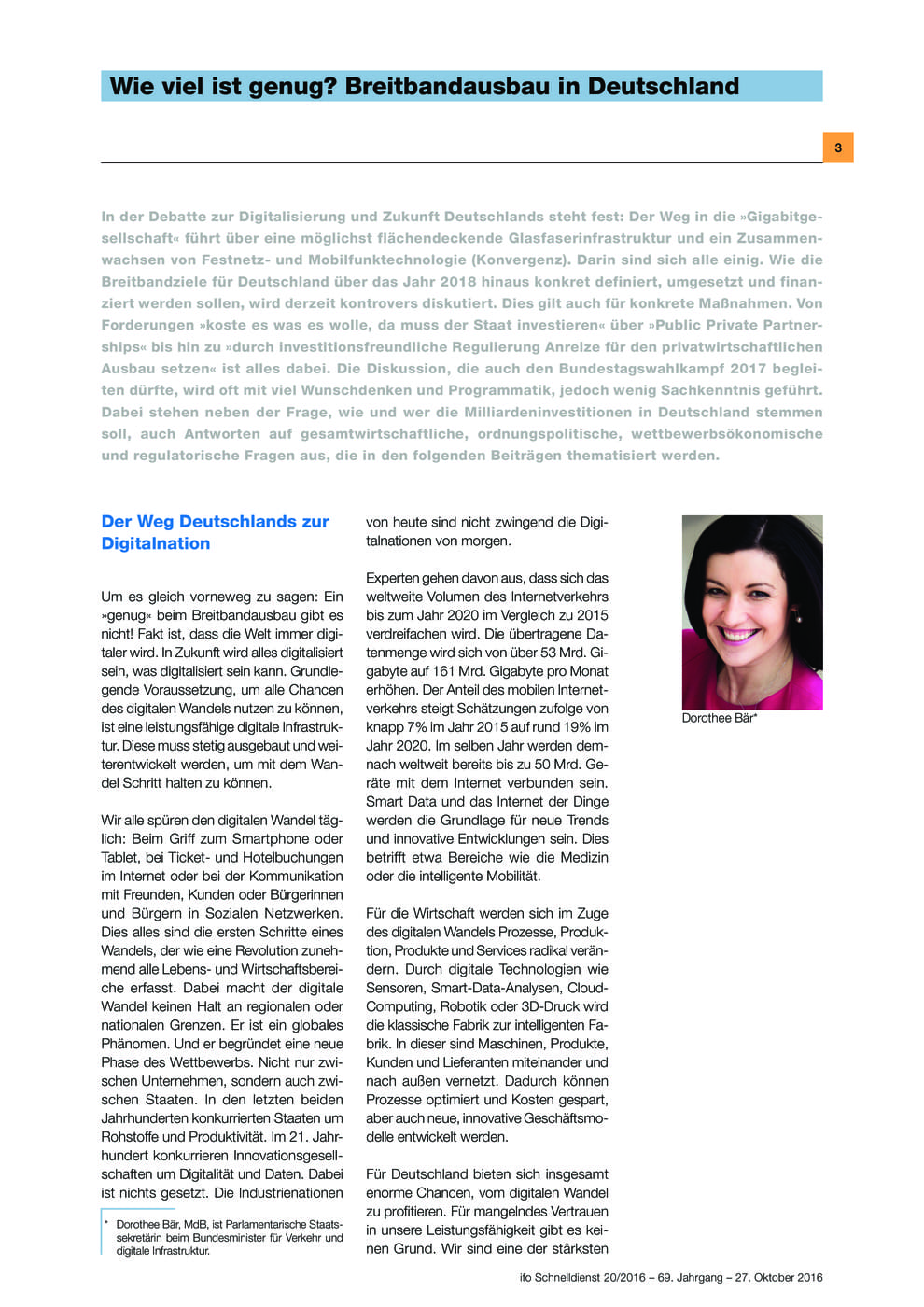How Much Is Enough? Broadband in Germany
ifo Institut, München, 2016
ifo Schnelldienst, 2016, 69, Nr. 20, 03-28

On track to the gigabit society: how should broadband targets be concretely defined, implemented and financed beyond 2018? Dorothee Bär, German Federal Minister for Traffic and Digital Infrastructure, points out that the Ministry founded a platform for companies ready to innovate and invest called the Netzallianz Digitales Deutschland right at the beginning of the current legislative period. Peter Knauth, from the German Federal Ministry for Energy Affairs and Energy, presents the Ministry’s measures as part of its comprehensive digital strategy 2025, which ranges from supporting start-ups, an innovation and investment-oriented optimisation of the regulatory framework, intelligently networking central sectors, a new data policy and supporting SMEs. Wilhelm Eschweiler, Federal Network Agency, would like to meet the multiple challenges of broadband expansion with a flexible approach to regulation, which takes into account regional market relations and features investment incentives. For Wolfgang Kopf, Deutsche Telekom AG, preventing a digital divide between urban and suburban areas must take priority over maximum bandwidth capacities for a few percent of the population in conurbations and selected areas. According to Valentina Daiber, Telefónica Germany, Germany needs a digital quantum leap and courageous, ambitious target setting for its digital agenda 2030. From the point of view of Wilhelm Dresselhaus, Nokia Deutschland, the network for the gigabit society will be a mix of fixed network and wireless technologies, in which end customers can seamlessly switch back and forth between the different access technologies. For Iris Henseler-Unger and Christian Wernick, WIK-Consult GmbH, Bad Honnef, the focus should be on the expansion of nationwide gigabit networks, by 2025 if possible. They recommend defining a political goal to replace the government’s broadband goal for 2018. Justus Haucap, Ulrich Heimeshoff and Mirjam Lange, University of Dusseldorf, note that it is not enough to lay a growing amount of broadband cable if framework conditions do not favour the development of interesting services and contents. The next German government should set up a new deregulation commission to analyse the barriers to the development of digital business models. Oliver Falck and Andreas Mazat, Ifo Institute, note that demand for broadband is currently lagging behind supply. Available broadband is often not used by either private households or by companies. They are therefore warning of excessively high broadband targets and suggest gearing broadband expansion towards local, technological circumstances instead.